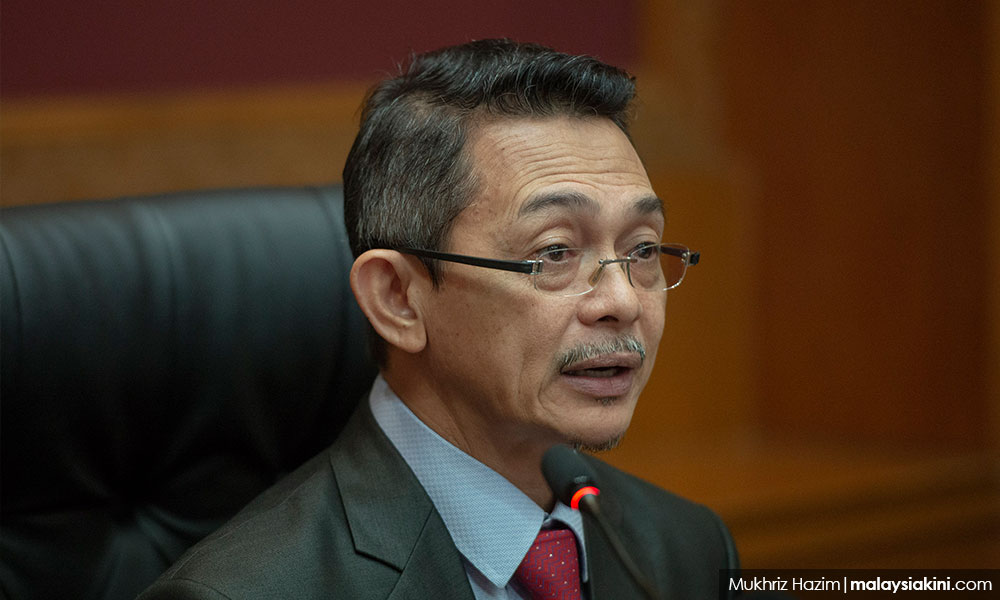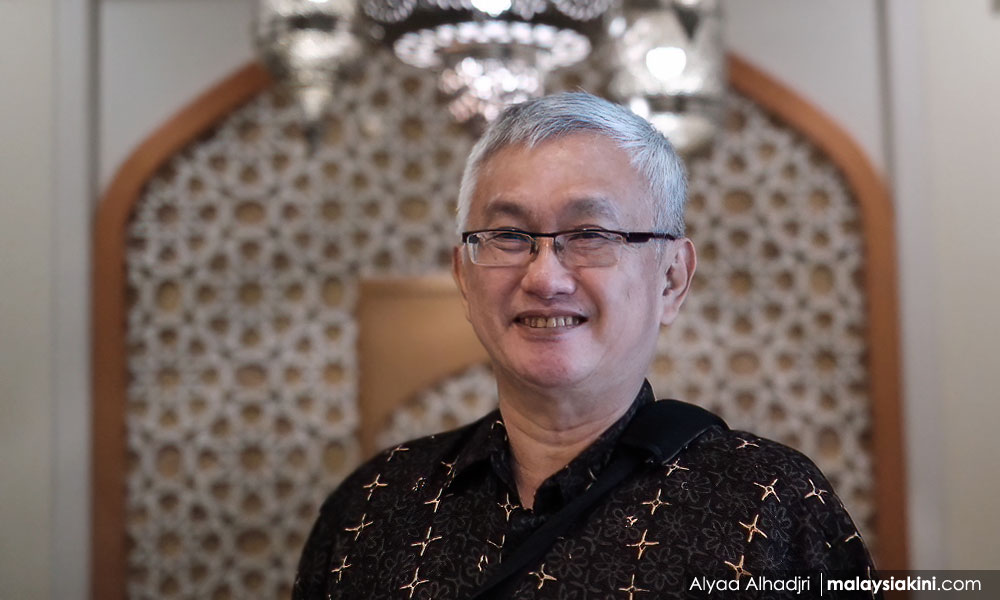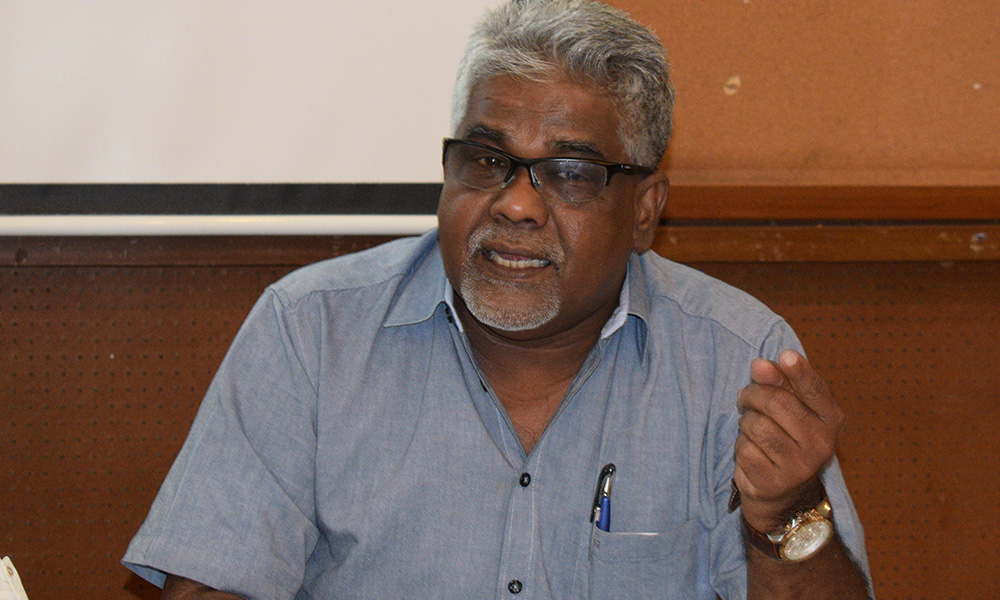A migrant welfare activist has laid the bulk of the blame for the breakdown in the bilateral domestic worker agreement between Malaysia and Indonesia on the Human Resources Ministry director-general.
Calling for his removal, Migrant Care country representative Alex Ong said the director-general, Asri Ab Rahman, had poorly advised the minister about Malaysia’s ability to commit to the terms in the memorandum of understanding (MOU).
“Bureaucrats in the Home and Human Resources ministries are causing gaps in implementation and efficacy,” he said.
On Wednesday, Indonesia implemented a temporary freeze on the entry of its workers into Malaysia, citing a breach of the domestic worker MOU terms on the Malaysian side.
The country’s top envoy in Malaysia, Hermono, who goes by one name, explained that the Immigration Department’s continued application of its Maid Online System (MOS) in the recruitment of Indonesian domestic workers was a blatant breach of the MOU.
In response, the Human Resources and Foreign Affairs ministries announced urgent discussions would be held with the Home Ministry to resolve the matter.
Ong, who was in support of Indonesia’s decision, also pointed out that bureaucratic politics in Malaysia, especially between the Human Resources and Home ministries, was the root cause of forced labour and human trafficking in the country.
“The cabinet decision to shift some authority from the Home Ministry to the Human Resources Ministry before the signing of the MOU was indicative of this,” he said.

However, Ong said it was evident that the Human Resources Ministry had entered into this bilateral agreement without first resolving inter-agency matters, and this had led to Indonesia giving Malaysia a slap in the face.
He urged lawmakers to query this blunder in the upcoming Parliament session.
Ong said as the ministry that was taking the lead on this agreement with the bulk of the responsibility for the implementation of its terms, the Human Resources director-general could not ignore his accountability for the outcome of the MOU or ignore ongoing bad practices.
The activist explained that the policy-making process in Malaysia marred by the rivalry between ministries and rival agencies was the root cause of the messy management of migrant workers in Malaysia.
He said government institutions and their respective proxies tried to maximise their interests in the monetary aspect of the foreign workers industry.
“It’s very clear that their interests are mainly resources. There was a huge amount of resources that was circulated in the management of migrant workers in Malaysia,” he added.

Poor migrant worker management
Labour Law Reform Coalition co-chairperson Gopal Kishnam described the bad management of migrant workers in the country as reflective of the country’s poor governance for more than 10 years.
He said Malaysia was not fully exploring the capacity of its workforce, and the heavy reliance on the migrant workforce was unnecessary and a result of bad planning and poor implementation of policies.
“It was recently reported that 350,000 Malaysians were crossing the Causeway to Singapore every day, and most of them are employed in the 3D jobs, which are dangerous, dirty and difficult.
“They spend a total of six hours travelling to and from their workplace, not because of the exchange rate but because of a higher salary.
“Unlike Malaysia, Singapore has implemented a standard salary system according to the job description, and this works fairly because they get paid decent wages,” he said.
Gopal, who is also the secretary-general of the National Union of Transport Equipment and Allied Workers in Malaysia, pointed out that in the government’s inability to fully explore the capacity of its workforce, women who are mothers were a huge untapped human resource.
He said childcare facilities in the workplace could greatly improve women’s participation in the workforce and reduce the country’s reliance on migrant labour.
“While all benefits-in-kind are taxable, under Public Ruling No. 11/2019, companies providing childcare benefits and childcare centres are tax exempted for those benefits, but how far have the workers benefited from this?
“Are companies benefitting from the tax exemption but not fully implementing childcare facilities?” he asked.

A new phenomenon
Meanwhile, Gopal said employers were still on the lookout for undocumented workers.
“Undocumented workers exist in Malaysia because employers hire them.
“The fact that the Labour Department has not taken any action against companies whose goods have been prevented from entering the United States owing to forced labour practices is indicative of leniency toward employers while workers are punished instead.
“I believe the majority of them enter Malaysia with legitimate documents but owing to various reasons, they fall into the undocumented category due to no fault of theirs,” he said.
Gopal explained that there was a new phenomenon where third-party contractors provided cheap labour to employers who did not want to keep them on their registers.
He said although this was against the law in Malaysia, it was still being practised widely in the country, adding: “I don’t trust the Labour Department to eradicate this practice.”
For these reasons, Gopal too, was in support of Indonesia’s decision to impose a freeze on sending its workers to Malaysia.
Meanwhile, while announcing the labour freeze on Wednesday, the Indonesian ambassador also vowed to file complaints against companies taking this opportunity to hire undocumented workers from Indonesia. - Mkini



No comments:
Post a Comment
Note: Only a member of this blog may post a comment.